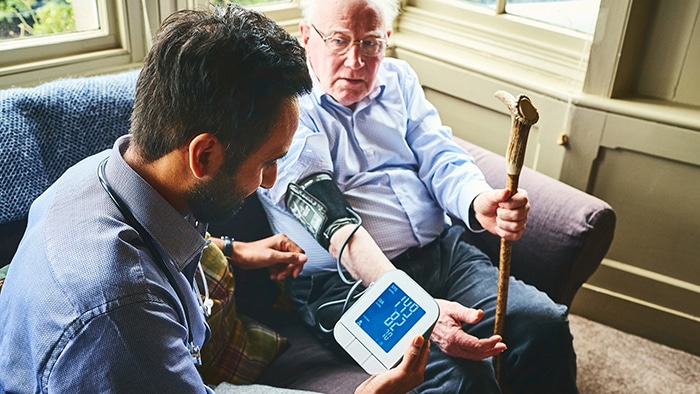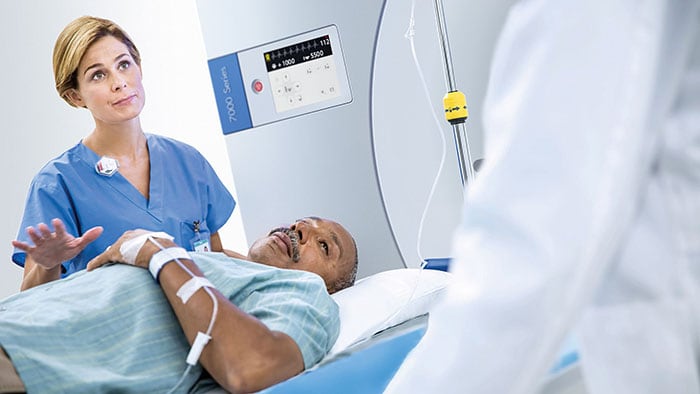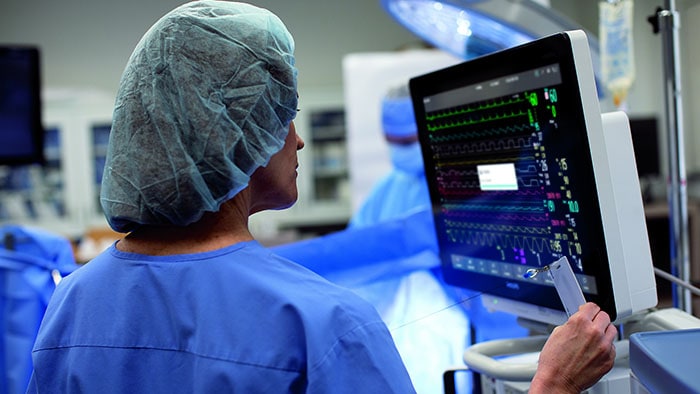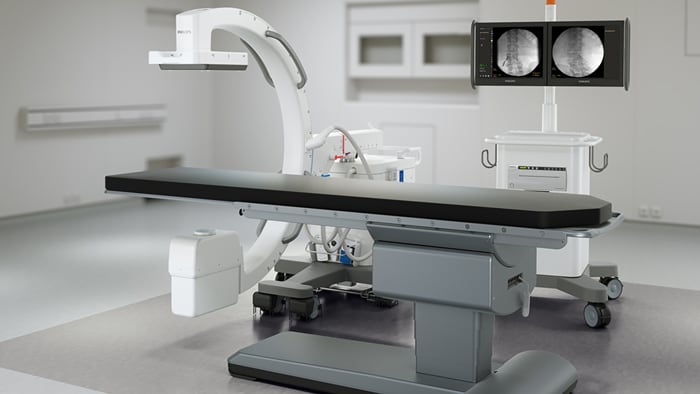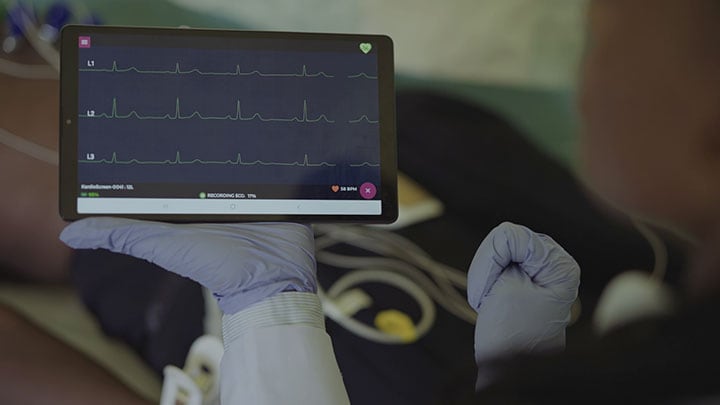Jan 15, 2018
Headway in modernising public health with advanced oncology diagnostics facility
A new leading-edge facility tackles the burden of cancer with patient-specific precision
Ga-Rankuwa, Pretoria – As part of the Gauteng Department of Health’s (the “Department”) concerted efforts to boost service delivery and fast track the diagnosis of patients suffering from cancer, today, Gauteng MEC for Health Dr Gwen Ramokgopa launched an advanced oncology facility at the cost and investment of R36 million, at Dr George Mukhari Academic Hospital (GDMAH) in Ga- Rankuwa, Tshwane. The Department and DGMAH in Ga-Rankuwa collaborated with Philips South Africa to bring advanced oncology care to patients with a new leading-edge oncology diagnostics facility that harnesses multiple technologies to provide high-quality data fast, and creates a comfortable and calming environment for patients to increase chances of a good quality life and positive treatment outcomes. “I cannot contain my excitement with the launch of this much needed biomedical equipment because to us patient care and safety will always come first and today’s launch of the first of its kind PET-CT imaging system in Africa serves as a testimony of our unreserved commitment to improve patient care and the realisation of the Gauteng government’s agenda of Transformation, Modernisation and Re-industrialisation”, said MEC Ramokgopa. The facility includes an advanced Philips Ingenuity TF PET/CT- a nuclear imaging technique that combines positron emission tomography (PET) and computed tomography (CT) to evaluate the structure and function of cells and body tissue. This advanced PET-CT solution ultimately offers a variety of patient-specific methods and tools to facilitate optimal management of both image quality and radiation dose – allowing practitioners to truly focus on each patient’s specific needs. “The GDMAH serves a 1.7million population catchment area, which includes the Bojanala District in the North West Province and Limpopo Province. Therefore, I am optimistic that today’s launch will mark the beginning of an end of suffering to the majority of our cancer patients who used to be referred to Steve Biko Academic Hospital (SBAH) for appropriate PET-CT Scan diagnostics prior to specific treatment for their type of malignancy. This was less than ideal because the overloading of SBAH resulted in tremendously long queue delays which impacted negatively on effective patient management”, added the MEC. “The system was installed in June 2017, and has already helped guide decision-making for early diagnosis and assessment of treatment efficacy for over 140 patients,” says Prof Trevor Mdaka, Head of Nuclear Medicine at the Department. “We are thrilled with the results and the level of care we are able to provide our people with world-class technology.”
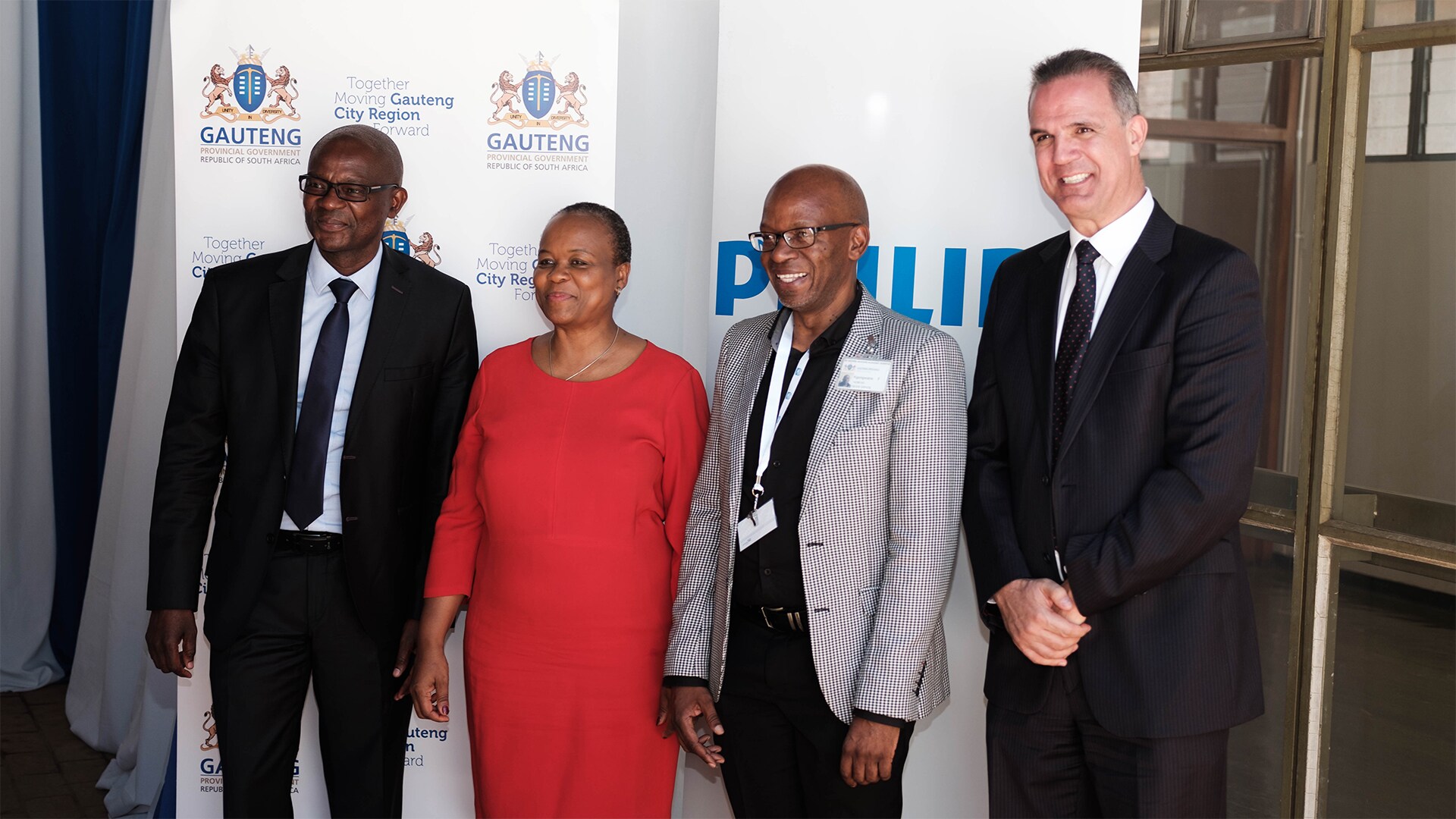
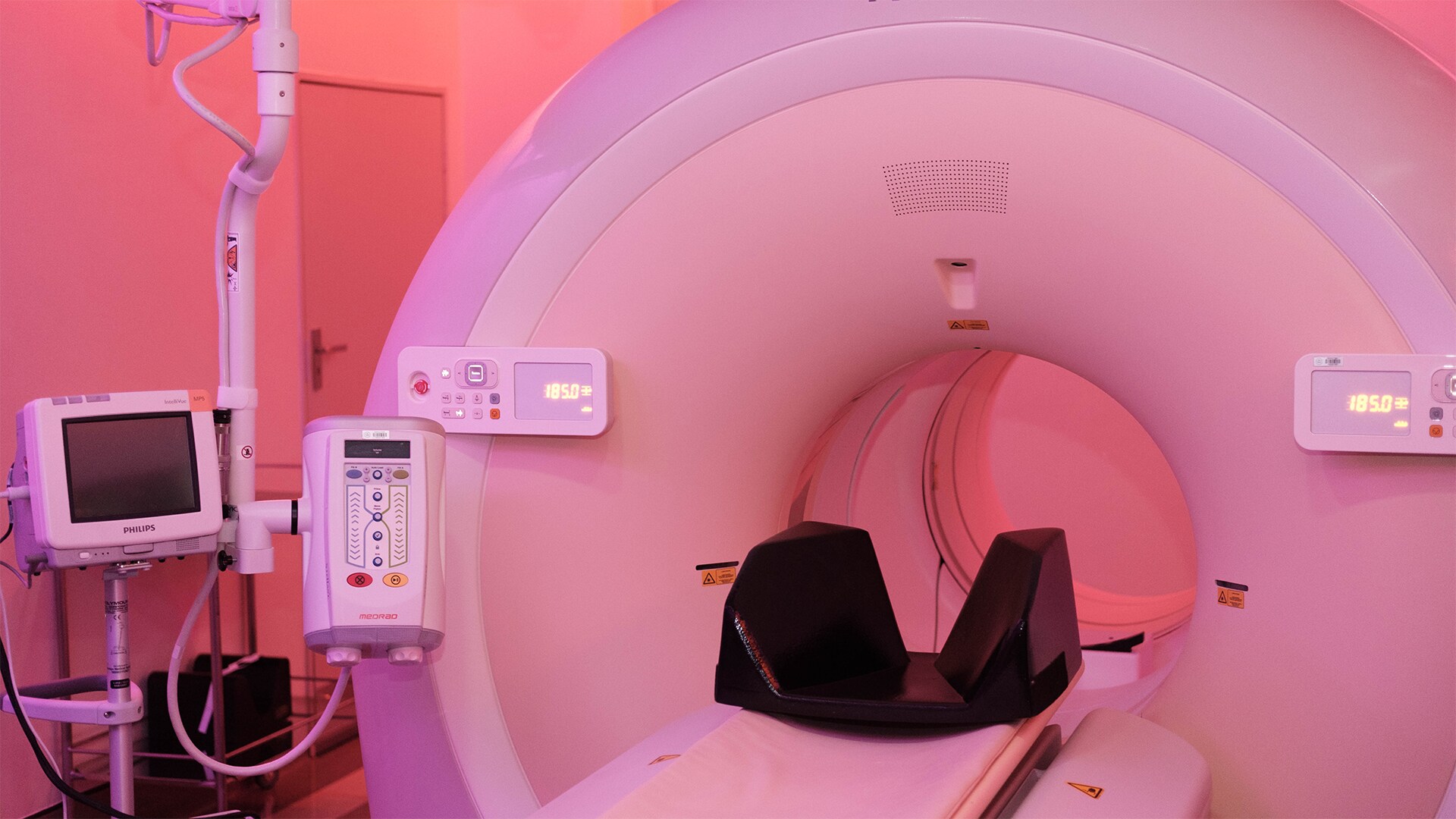
Caption: (Left) Ntutule Tshenye, GM - Philips South Africa; Gauteng MEC for Health, Dr Gwen Ramokgopa; Dr Freddy Kgongwana, CEO of Dr George Mukhari Academic Hospital (DGMAH); and Jose Fernandes, Head Philips Healthcare, South Africa today inaugurated the advanced oncology diagnostics facility at DGMAH in Ga-Rankuwa. (Right) The first Ingenuity TF PET/CT with Ambient Experience installed in Africa will support the Department‘s plans to modernise public health services in its quest to improve the quality of life of its communities. Understandably, many patients referred for PET suffer from anxiety that has been found to affect the image quality and often result in a false positive, which impacts the diagnosis and quality of care. To address this challenge, the new solution transforms the experience by customising both the uptake and scanning room to create a comfortable and calming environment for patients by using technology as a positive distraction when needed most. The immersive, multi-sensorial experience, can lead to greater involvement from patients in their own therapy, reduced anxiety and increased comfort, contribute to higher patient satisfaction, and even a possible reduction in procedure time. “In today's complex care environment, delivering high quality critical care demands new approaches and thinking,” says Ntutule Tshenye, General Manager, Philips South Africa. “We know that there are no simple solutions to the complex realities associated with oncology care, which is why innovation drives us to push the boundaries that are standing in the way of organising healthcare around the patient to deliver better outcomes.” The newly acquired facility will go a long way in contributing towards effective diagnosis and management of patients, improve the training and education of healthcare professionals, as well as sustain efforts to improve medical research for the benefit of finding solutions to the burden of disease in our communities. Cancer today, is killing more people every year than AIDS, tuberculosis and malaria combined1, through ongoing innovation, Philips and the project collaborators intend to tackle the rising incidence of cancer in South Africa by collaboratively empowering the next generation of doctors to stay on the cutting edge of technology and shape the future of care with a system designed to work across the oncology care cycle. Creating access to the latest technology will not only create a more conducive environment for doctors, but it also offers enhanced healthcare service delivery, and capacity for specialist training to make the Department more competitive in the cancer research, innovation and development of effective treatment modalities for cancer.
About Royal Philips
Royal Philips (NYSE: PHG, AEX: PHIA) is a leading health technology company focused on improving people's health and enabling better outcomes across the health continuum from healthy living and prevention, to diagnosis, treatment and home care. Philips leverages advanced technology and deep clinical and consumer insights to deliver integrated solutions. Headquartered in the Netherlands, the company is a leader in diagnostic imaging, image-guided therapy, patient monitoring and health informatics, as well as in consumer health and home care. Philips' health technology portfolio generated 2016 sales of EUR 17.4 billion and employs approximately 70,000 employees with sales and services in more than 100 countries. News about Philips can be found at www.philips.com/newscenter.
Topics
Contacts

Radhika Choksey Head of Brand, Communications and Digital Philips Africa Tel: +31 62525 9000
Email: radhika.choksey@philips.com
